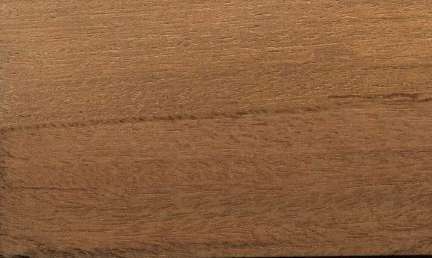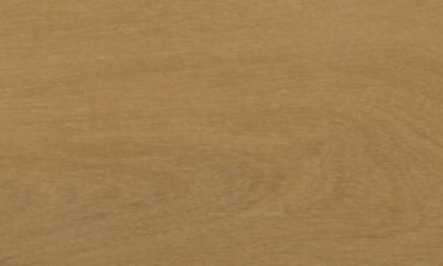 
Manwood (Minquartia guianensis)
Family: Olacaceae
Common names: Acaiquara, Acapu, Acar-Huacapu, Acaricaara, Acaricoara, Acaricuara, Acarioba, Acariquara, Araciuba, Aralta, Arata minquar, Aratta, Black manwood, Bois agouti, Criollo, Guayacan, Guayacan pech, Guayacan pechiche, Huacapu, Incorruptible, Jewalidanni, Konhout, Konthout, Makka, Manu, Manwood, Mincoa, Mincouart, Minguar, Pachiche, Pechiche, Platano, Punte candado, Urari, Urodibe, Wanania
Distributed in: Bolivia, Brazil, Colombia, Columbia, Costa Rica, Ecuador, French Guiana, Guyana, Nicaragua, Panama, Peru, Suriname, Venezuela (Central America, Latin America)
Distribution overview: The species occurs in Central and South America, and extends from Nicaragua to Ecuador and eastward into the Guianas and Brazil.
Common uses: Boat building (general), Boat building: decking, Bridge construction, Charcoal, Construction, Crossties, Decks, Factory flooring, Flooring, Furniture, Heavy construction, Joinery, Light construction, Paneling, Piling, Poles, Posts, Railroad ties, Sporting Goods, Tool handles, Turnery, Utility poles, Vehicle parts, Veneer: decorative, Walking sticks
Environment profile: Status has not been officially assessed
Tree size: Trunk diameter is 100-150 cm
Colors: the heart isRed, Yellowand the sapwoodWhite to yellow, Yellow.The grain isWavy, the textureMediumand the lusterMedium
Natural durability: Very durable, Weathering properties are excellent
Odor: No specific smell or taste
Kiln Schedules: Dry at a slow speed
Kiln Drying Rate: Naturally dries slowly
Drying Defects: Slight twist/warp, Splitting
Ease of Drying: Thick Stock Requires Care
Tree Identification: Bole/stem form is not buttressed
Comments: General finishing qualities are rated as good Generally strong, hard, and heavy Used for crossties, utility poles, fence posts, and heavy construction
Blunting Effect: Moderate
Boring: Fairly difficult to very difficult
Carving: Fairly Difficult to Very Difficult
Cutting Resistance: Moderate to saw
Mortising: Fairly Difficult to Very Difficult
Moulding: Fairly Difficult to Very Difficult
Movement in Service: Fairly Difficult to Very Difficult
Nailing: Fairly Difficult to Very Difficult, Pre-Boring Recommended
Planing: Poor to Very Poor
Resistance to Impregnation: Resistant sapwood
Response to hand tools: Moderate working qualities
Routing recessing: Fairly Difficult to Very Difficult
Sanding: Good sanding finish
Veneering qualities: Veneers easily, Veneers moderately easy
Steam bending: Fair to Good Results
Screwing: Fairly Difficult to Very Difficult, Fairly Easy to Very Easy; Turning: Poor to Very Poor Results
Polishing: Satisfactory; Staining: Fair to Good;
- Numerical data Metric
- Numerical data English
- Strength properties
- References
 |
 |
 |
 |
| Item |
Green |
Dry |
Metric |
| Specific Gravity |
0,68 |
0,83 |
|
| Density |
|
881 |
kg/m3 |
| Bending Strength |
997 |
1485 |
kg/cm2 |
| Crushing Strength |
101 |
158 |
kg/cm2 |
| Hardness |
|
873 |
kg |
| Impact Strength |
|
137 |
cm |
| Shearing Strength |
|
62 |
kg/cm2 |
| Stiffness |
148 |
167 |
1000 kg/cm2 |
| Tangential Shrinkage |
8 |
|
% |
| Radial Shrinkage |
5 |
|
% |
| Weight |
865 |
673 |
kg/m3 |
| Maximum Load |
0,49 |
0,84 |
cm-kg/cm3 |
| Toughness |
|
|
cm-kg |
| Static Bending |
622 |
874 |
kg/cm2 |
|
 |  |  |  | | Item | Green | Dry | English | | Bending Strength | 14193 | 21135 | psi | | Crushing Strength | 1450 | 2251. | psi | | Density | | 55 | lbs/ft3 | | Hardness | | 1925 | lbs | | Impact Strength | | 54 | inches | | Maximum Crushing Strength | 6835 | 10420 | psi | | Shearing Strength | | 882 | psi | | Static Bending | 8859 | 12436 | psi | | Stiffness | 2118 | 2376 | 1000 psi | | Work to Maximum Load | 7 | 12 | inch-lbs/in3 | | Specific Gravity | 0.68 | 0.83 | | | Weight | 54 | 42 | lbs/ft3 | | Radial Shrinkage | 5 | | % | | Tangential Shrinkage | 8 | | % | | Volumetric Shrinkage | 14 | | % | |
Shrinkage, Tangential = fairly large
Shrinkage, Radial = fairly large
Shearing strength (parallel to grain) = very low
Max. crushing strength = very high
Max. crushing strength = high
Hardness (side grain) = very hard
Hardness (side grain) = medium
Density (dry weight) = 53-60 lbs/cu. ft.
Density (dry weight) = 46-52 lbs/cu. ft.
Bending strength (MOR) = very high
Bending strength (MOR) = high
Shrinkage, Tangential = large
Modulus of Elasticity (stiffness) = high
Bending strength (MOR) = medium
Shrinkage, Radial = large
Modulus of Elasticity (stiffness) = medium
Max. crushing strength = medium
Density (dry weight) = 61-67 lbs/cu. ft.
Weight = very high
Shrinkage, Tangential = moderate
Resists denting and marring
Density = high
Compression strength (parallel to grain) = very high
Acosta-Solis, M.,1960,Maderas Economicas del Ecuador y sus Usos,Editorial Casa de la Culhra Ecuatoriana QuitoBerni, C.A., Bolza, E., Christensen, F.J.,1979,South American Timbers - The Characteristics, Properties and Uses of 190,Species,C.S.I.R.O Div. Building ResearchErfurth, T., Rusche, H.,1976,The Marketing of Tropical Wood B. Wood Species from S. American Tropical,Moist Forests,F.A.O. Forestry DepartmentFalla Ramirez, A.,1971,Resultados de los estudios Fisico-Mecanicos de 41 especies Maderables de,la,region Carare-Opon. (Results of studies of the physical and mechanical,properties of 41 timber species of the Carare-Opon region.,Inst. de Desarrollo de los Recursos Naturales Renovables. Div. For.,Pleagble Divulgativo, Inderena Colombia,pp6Fanshawe, D.B.,1954,Forest Products of British Guiana Part 1 Principal Timbers,Forest Department British Guiana Forestry Bulletin (New Series 2nd,Edition,No.1Hoheisel, H., Karstedt, P.,1967,Identification of Ecuadorian Wood Sp. for possibilities of Utilization on,the basis of Technological Results,Institito Forestal Latino-Americana Merida VenezualaKribbs, D.A. 1959. Commercial Foreign Woods on the American Market. Buckhout Lab., Dept. of Botany, The Pennsylvania State University, University Park, Pennsylvania.Little, E.L.,1948,A Collection of Tree Specimens from Western Ecuador,Caribbean Forester,9(3,pp215-98Loureiro, A.A., Freitas da Silva, M.,1968,Catalogo das Madeiras da Amazonia (2 vols,Min. do Ultramar Belem BrasilRecord, S.J., Hess, R.W.,1943,Timbers of the New World,Yale University PressRecord, S.J., Mell, C.D.,1924,Timbers of Tropical America,Yale Univ. PressRecord, S.J.,1938,The American Woods of the Orders Celastrales, Olacales and Santalales,Tropical Woods,7(53,pp11-38Scheffer, T.C., Duncan, C.G.,1947,The Decay Resistance of certain Central American and Ecuadorian Woods,Tropical Woods,12(92, PP1-24Surinam Forest Service,1952,Surinam Timber - A Summary with brief descriptions of the main timber,species of Surinam,Surinam Forest ServiceTakahashi, A.,1975,Compilation of data on the Mechanical Properties of Foreign Woods (Part 2,Central and South America,Shimane University, Japan, Research Report on Foreign Wood No.4Timber Development Association Ltd.,1948,Notes on Ecuadorian Timbers,TRADA, Timber Information,35,pp5Tropical Woods,1926,The 'Manwood' (Minquartia guianensis) of Panama,Tropical Woods 1(8) pp10-11Villamil, F.G.,1971,Maderas Colombianas,Proexpo ColombiaVolkart, C.,1965,Recopilacion dedatos sobre propiedacies y usos maderos del Bosque Tropical,de las Costa Atlantica de Nicaragua,Turrialba,15(1, pp43-57Wangaard, F.F. and A. Kochler and A. F. Muschler.1954. Properties and Uses of Tropical Woods IV, Tropical Woods, No. 99,Yale University Press, School of Forestry, New Haven, Connecticut.Wangaard, F.F., et al,1954,Properties and Uses of Tropical Woods 4,Tropical Woods,14(99, pp1-187
|









